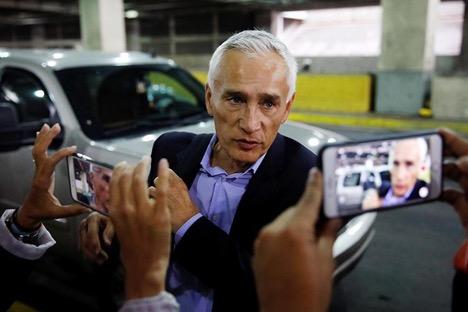Venezuela’s political crisis continues to unfold, and the country’s press crackdown intensified over the past week. On Monday, a Univision news crew headed by reporter and anchor Jorge Ramos was detained for over two hours at the presidential palace in Caracas because Nicolás Maduro allegedly did not like the questions asked by Ramos. The crew’s cameras and cell phones were confiscated by security agents, and the crew was expelled from the country the next morning. On Saturday, a reporter was injured by pellets while covering attempts to bring aid into Venezuela over the Colombian border.
Meanwhile, citing “sensitivities over shouted questions,” the White House barred four journalists from covering a dinner between President Donald Trump and North Korean leader Kim Jong Un in the Vietnamese capital Hanoi.
Global press freedom updates
- Blog: Dark side of sports journalism as fans harass female reporters online
- Critical news websites blocked during Cuba referendum vote
- Myanmar journalists held, assaulted by mining company over news coverage
- Ukrainian investigative journalists report being followed, monitored
- Jammu and Kashmir government pulls advertisements from two major newspapers
- Moroccan press freedom conference in Paris shut down after disruptions, power cut
- Chad publisher handed suspended jail term for critical reporting on president’s brother
- CPJ, RSF call on Nicaragua to release two journalists held on terrorism charges
- South Africa elections 2019: Journalist safety kit
- Read the latest Turkey Crackdown Chronicle, CPJ’s weekly round-up of press freedom violations in the country
Spotlight
